 |
submitted by /u/Sellar [link] [comments] |
from r/ChineseLanguage: a community for people who are studying, teaching, or interested in Chinese! https://ift.tt/2LbepFx --------
More tips about learning Chinese
http://hellolearnchinese.com
 |
submitted by /u/Sellar [link] [comments] |
I’m just having a hard time recognizing when to use which one and which one is more formal. What is the difference between the two.
So should I factor in character for puns, or would it be only tone that marks the pun?
For example 寻 and 荀 have the same tone but different character, so supposed I say 荀子揍寻。 that’s not a very good pun, but it is a pun nonetheless, right?
 |
submitted by /u/poe-tae-toe [link] [comments] |
 |
submitted by /u/hoi_ming [link] [comments] |
 |
submitted by /u/letusgoreddit [link] [comments] |
 |
submitted by /u/choubb [link] [comments] |
the way to speak is very simple all you need to do is use such words as me ruv u rong time and have your name as wong ur welcome
Mandarin Chinese is spoken by about 1.2 billion people around the globe, making it the most spoken language in the world. By learning Chinese, you can unlock the potential to speak to over 16% of the world’s total population, with most of them coming from China.
Check this link for the entire article: https://blog.lingobus.com/learn-chinese/where-is-mandarin-spoken
Mandarin Chinese has been the official language in China since the 14th century. But did you know that learning Chinese can not only help you talk with people in mainland China but also with people in other areas of the world as Mandarin Chinese is widely used in many other countries and regions outside of China including Singapore, Vietnam, Indonesia, etc.
I’m impressed. The native speakers here have like zero problems with English grammar. In my personal life, I’ve met an international student from China who began studying English when she was only 2 years old. At that age, English would be a native language for her, alongside Chinese. As a result, her American English intonation was almost perfect. There were a few bits here and there that sounded funny to me, but for the most part, it was good. The “stereotypical Chinese accent” doesn’t seem to exist anymore. In written English, the words are so well-chosen that I would have thought it was written by a native English speaker. Sure, I’m met people on HelloTalk who are monolingual or primarily dominant in Mandarin, having great difficulty putting sentences together, but the native speakers here impress me with English slang! Impressive!
As fluent bilinguals, has English ever affected your native language, Chinese, so in a sense you don’t use the language like a Chinese monolingual? Or do you find yourself blending seamlessly with both English-speaking monolinguals and Chinese-speaking monolinguals?
Dear all,
for a project I found an interesting paper, but it seems to be only available in Chinese. I am looking for access to the paper. Can anyone tell me if this is possible? I do not need a translation in the first place, as a machine translation for a rough overview would be find.
This is the paper:
http://en.cnki.com.cn/Article_en/CJFDTOTAL-ZGTC200905025.htm
How can I download the PDF? Thanks for help!!!
I'm outsourcing translations for my website and need more information on character set(s) and which are prevalent in non-China markets.
We don't do business in mainland China, but will be catering for Chinese speakers in some of the following countries: Australia, New Zealand and Japan, Canada and North America, South America, Europe (Germany, , Japan, Nordic Countries).
I believe that there's a clear distinction between Taiwan Chinese (with speakers use Traditional script) and Chinese-proper (with speakers using Simplified script), but was wondering if there was a standard for Chinese communities in other countries if we don't have the visitor's particular preference.
If there isn't a geographical distribution of speakers of any significance, is it easier for a "Traditional" reader to read Simplified script or a "Simplified" reader to read Traditional. Or is this cross-over not an option? Do we need to translate for both?
Apologies if I've misunderstood either language system or orthography. Way out of my depth here :)
I might be the only person on earth who cares, but I'm kind of curious to listen to old political speeches by the important people in chinese history. That said, some of them (like Mao) have strong accents etc, so I'd love to have transcripts as well (this would also be a good way to train the old 听力). Any clues? I figure the communist party has to have transcribed these speeches somewhere... but then again, maybe not. Or at least not for my grubby 美鬼 paws.
 |
submitted by /u/kawaiiasfucc [link] [comments] |
 |
submitted by /u/languniang [link] [comments] |
Since tones are so important for understanding the meaning of what you are trying to say, how possible it is, that a native speaker wouldn't recognize the sound of their name pronounced with the wrong tones within in a sentence?
Use my invite code to get beans at Manga Mandarin. My Code: MM259626
More about Manga Mandarin http://www.funnybean.com/
I know few of these, I want to know if they are plenty or not in the language and how often do they happen in both spoken and written mandarin? Also, where can I find good online content about this subject?
 |
submitted by /u/Chinanative [link] [comments] |

If you’re here it means you suffer from picky eaters in your life, and you need some quick and easy options to shut them up and feed them with minimal hassle. We’ve rounded up 21 one-pot (bonus!) meals to please even the pickiest people. Growing up, being picky about food was not an option. You […]
The post 21 One-Pot Meals to Please Picky Eaters appeared first on The Woks of Life.
 |
submitted by /u/Chinanative [link] [comments] |
So despite recently passing HSK5, in all my time studying Chinese I have never used this character. I gather it means something like "to be willing to"...? I've always used 愿意 for this, and from what I can determine, Chinese people do the same.
So the point of this thread is... when do they use 肯? Do they actually use it much at all? What is the difference between 肯 and 愿意? Are there any common phrases or collocations or contexts where I should use 肯, where 愿意 would be wrong or sound weird?
这个字到底咋用啊?
Thanks in advance!
Most Chinese-learning tools for English speakers assume that the learner has zero knowledge of the Mandarin language. For English speakers with a Mandarin-speaking upbringing, I believe that they are better off with pedagogical materials aimed at monolingual native speakers in China or the bilingual offspring of overseas Chinese-Mandarin speakers. When taught in infancy, a language's grammar becomes intuitively understood, and materials targeted at monolingual natives tend to be implicit in teaching grammar. So, this post will collect a list of tools that will mostly benefit the bilingual offspring of overseas Chinese speakers who speak Mandarin at home.
HSK Vocabulary Terms : These HSK terms are ranked by frequency. Learn to recognize all the characters on all the lists. HSK 1 and HSK 2 are so simple that it may just take a day to learn each one. HSK 3 and HSK 4 are relatively simple as well, but there is a lot of content - more words - so expect a few days to recognize all the characters. HSK 5 and 6 will obviously take a much longer time, mainly because of the amount of words and characters. Recognizing all the characters will bring up your literacy to match your speaking/listening skills.
汉典/Han Dian : This is an online Chinese dictionary. Unlike Pleco, a popular Chinese-English/English-Chinese dictionary, this dictionary offers Chinese definitions.
Get a physical copy of Xin Hua Zi Dian / 新华字典. It is a character dictionary aimed at a person who is literate in Chinese. For the semi-literate or illiterate, just searching the character by radical 部首 may help you become intimate with each character and focus on the semantic and phonetic components. Just take your time with looking up characters, reading as many characters and their definitions, because every time you take is invaluable. I can speak anecdotally that the Chinese entry and definition re-enforce the learning process.
Get a physical copy of Xian Dai Han Yu Ci Dian / 现代汉语词典. This book is a word dictionary. Each entry is a word. It is also intended for a person who is literate in Chinese.
Get a physical copy of 英汉汉英成语袖珍词典. find oneself is actually an idiomatic expression that means 量力而行.
新袖珍英汉词典 - a pocket dictionary of English words and English and Chinese definitions.
最新牛津现代高级英汉双解词典 - a dictionary of English words and English and Chinese definitions.
To be frank, these books were actually books used by mother and father who were studying English in America. So, it can be used both by people who are learning English and by people who are learning Mandarin. They likely purchased the books back when they were still in China.
These books are aimed at the overseas Chinese population, especially the kids of full or partial Chinese descent who are raised by Mandarin-speaking parents. Link: http://www.hwjyw.com/textbooks/downloads/zhongwen/ The teaching format feels very similar to literature textbooks written for primary school students in the Mainland. I have a copy of the Mainland books, thanks to two of my cousins who grew up there and gave me their old schoolbooks. The books intended for overseas Chinese students are different from the books intended for Mainland students in two significant ways: (1) the use of English in the earlier levels (overseas Chinese students tend to be bilingual) and (2) the reading passages tend to be something that overseas Chinese children can identify with (seriously, if you live in China, do you think you would think of that restaurant down the street as Chinese?). Anyway, the 12 books in the overseas Chinese set seem to be Grades 1-6 (primary school grade levels). There are also workbooks.
Any language learner learns well by linguistic immersion. For many second-language learners, they do not have a Chinese family. So, they have to study abroad in China to get that immersive environment, unless their country has a Chinatown, and they even work there. For first-language learners who still live with their parents who speak Mandarin as a native language, they just have to overcome the fear of speaking Mandarin and speak Mandarin to their parents. I think one big challenge for overseas Chinese people in the Anglophone world to speak Chinese is that the language is a constant reminder of their foreignness in a culture that already treats them as perpetual foreigners. All bilinguals experience some form of linguistic interference (it's not just grammatical interference or code-switching, but a cross-over of subconscious ideas), the English monolingual will start questioning the native fluency of the bilingual. It becomes embarrassing to be perceived as foreigners by speakers on both sides, using language that monolinguals find weird. Also, the lack of sufficient education in the language makes these overseas Chinese people incompetent in the language and dispassionate about learning it. I think the passion that many second-language learners have toward learning Chinese is beneficial to their learning, because without passion, you can't get very far. David Moser reports why he is attracted to the Chinese language:
Beautiful, complex, mysterious -- but ridiculous. I, like many students of Chinese, was first attracted to Chinese because of the writing system, which is surely one of the most fascinating scripts in the world. The more you learn about Chinese characters the more intriguing and addicting they become. The study of Chinese characters can become a lifelong obsession, and you soon find yourself engaged in the daily task of accumulating them, drop by drop from the vast sea of characters, in a vain attempt to hoard them in the leaky bucket of long-term memory.
I think a first-language learner who has the passion of a second-language learner has the best of both worlds. The learner can learn like a native speaker and have perfect, native-like pronunciation. The learner also learns the language out of interest rather than any sort of family heritage.
If you have a Chinese translation request, please post it as a comment here. Translation requests posted outside of this thread will be removed by the moderators or AutoModerator.
If you're requesting a review of a translation you have made, or have a question that has to do with grammar or details on vocabulary usage, feel free to post it as its own thread.
Community members: Consider sorting the comments by "new" to see the latest questions at the top.
This thread is for community members to practice communicating in Chinese. Please try to use Chinese in your comments as much as possible!
本帖子提供给大家多多练习读写汉语,实践交流技巧。请尽量的用汉语或方言进行评论!
 |
submitted by /u/MandarinCorner [link] [comments] |
I'm a beginner and I need tips for learning Chineese any help ?
 |
submitted by /u/languniang [link] [comments] |
It will only take 6 minutes to read this post!
Don’t have time to read it now? No problem! You can just click here to download 10 Useful Chinese Chengyu and Idioms PDF and read it later!
Chengyu 成语 (chéng yǔ) are idioms, usually made up of four Chinese characters. An idiom is a group of words that have a meaning not obviously made through the individual words. Most languages have their own idioms.
For example, in English when it rains heavily we commonly say it’s raining ‘cats and dogs’. It is not literally raining animals, but it reflects the nature of the rain as falling heavily, such as if cats and dogs were to fall.
In Spanish “Abrir la caja de los truenos” is the equivalent of to ‘open a can of worms’ which is used when a situation is created that will cause trouble or upset.
Idioms in any language are often interesting and sometimes even amusing. Whilst learning idioms is not essential, Chinese Chengyu will certainly improve your fluency and understanding of the Chinese language.
Below is a simple introduction to some useful Chinese Chengyu to whet your appetite. To learn more Chengyu you can check out the ‘Useful Chengyu’ flashcard sets in the Written Chinese Dictionary mobile app!
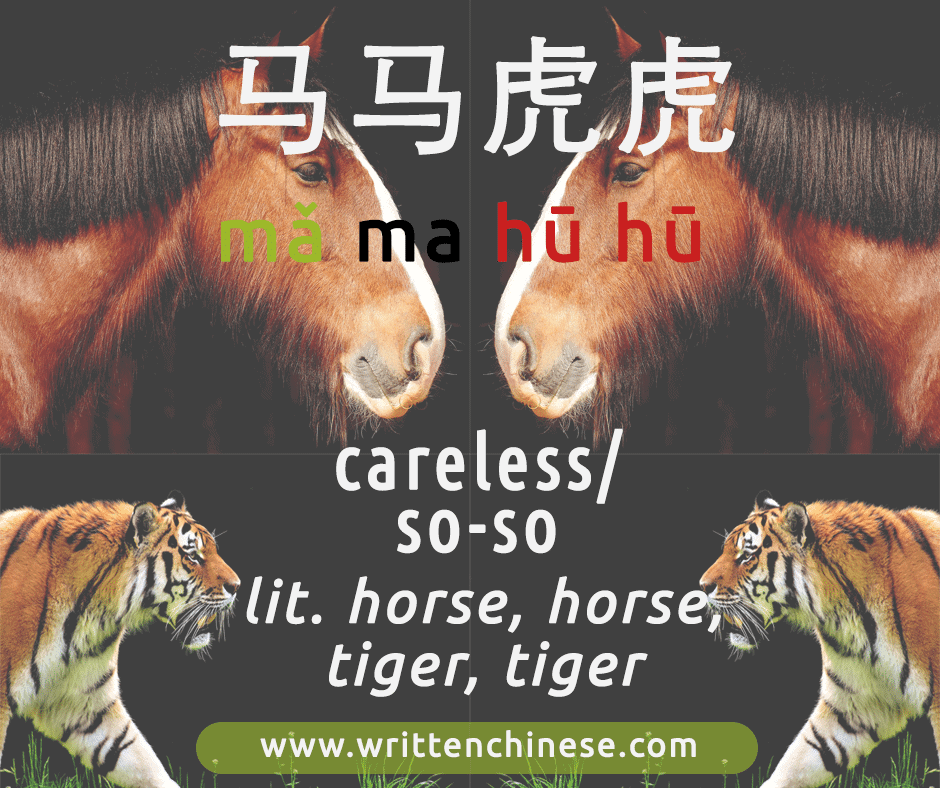
马马虎虎 is probably one of most well known Chengyu because the literal translation is ‘horse horse, tiger tiger’. This is somewhat amusing, but the most common meaning is something like ‘so-so’ or ‘not bad’.
Example:
你唱歌好听吗? (nǐ chàng gē hǎo tīng ma?) = Are you a good singer?
马马虎虎. (mǎ ma hū hū) = Just so-so.

Similar to the English expression ‘all sixes and sevens’, the literal translation of the idiom is ‘Seven Up, Eight Down’. This Chengyu refers to a person whose mind is a mess and cannot think straight.
Example:
我心里七上八下,不知该怎么办。 (wǒ xīn li qī shàng bā xià, bù zhī gāi zěn me bàn.) = I’m all at sixes and sevens about what to do.

The meaning behind this Chengyu is that something is inconceivable or truly amazing. The characters literally translate to 不可 = ‘cannot’ and 思议 which means to ‘comprehend’.
Example:
居然是他赢了,真是不可思议。 (jū rán shì tā yíng le, zhēn shì bù kě sī yì) = It is unbelievable that he won the game.

The translation of this idiom is ‘1 hair from 9 oxen’ and means to be a small thing amongst a huge quantity, like 1 hair amongst 9 cows. A similar idiom in English might be a ‘drop in the ocean’.
Example:
这点损失对他来说,只不过是九牛一毛。 (zhè diǎn sǔn shī duì tā lái shuō, zhǐ bu guò shì jiǔ niú yī máo.) = For him the loss was only a drop in the ocean.

This Chengyu means ‘let nature take its course’. The first bigram 顺其 means to ‘allow something to be’, whilst 自然 means ‘natural’ or ‘naturally’. The idea behind this chengyu is that something should not be forced, but allowed to happen of its own accord, whether that be love or forging new relationships.
Example:
顺其自然不等于放弃。 (shùn qí zì rán bù děng yú fàng qì.) = Letting go is not the same as giving up.

Meaning ‘to be free and easy’, this idiom translates as 自由 meaning freedom or liberty and 自在 which is to be ‘unrestrained’.
Example:
我最大的愿望就是可以自由自在的生活。(wǒ zuì dà de yuàn wàng jiù shì kě yǐ zì yóu zì zài de shēng huó.) = My greatest wish is to live as free as a bird.

This meaning of this idiom is ‘a financial loss could prevent further disaster’ or more poetically ‘A loss of wealth is a gain of health.’ Basically, this idiom suggests that we should take solace when we lose something of value, as something worse could have happened. 破财 means to ‘lose property’, 免灾 is to ‘escape disaster’.
Example:
手机丢了没关系,就当是破财免灾吧。(shǒu jī diū le méi guān xi, jiù dāng shì pò cái miǎn zāi ba.) It’s OK to lose your mobile phone, just regard this as buying peace.

This idiom is what is known as a 歇后语 (xiē hòu yǔ), in which the second half of the saying holds the actual allegorical meaning. Sometimes the second meaning can be completely left out.
In this case, the first part of the idiom, 飞蛾扑火 means ‘a moth flies into the flame’ which refers to ‘fatal attraction’. However, the second half 自取灭亡, actually holds the real meaning, which is to ‘court disaster, or to ‘dig your own grave’.
Example:
他们这样做无异于飞蛾扑火。(tā men zhè yàng zuò wú yì yú fēi é pū huǒ.) =
What they did was no different to being suicidal.

This is another example of 歇后语. The first half translates as ‘a dog who catches mice.’ whilst the second half, 多管闲事 means to be meddlesome or interfere with others’ business.
Example:
我关心她,她却觉得我是狗拿耗子。(wǒ guān xīn tā, tā què jué de wǒ shì gǒu ná hào zi.) = I was concerned about her, but she thought I was interfering in her business.
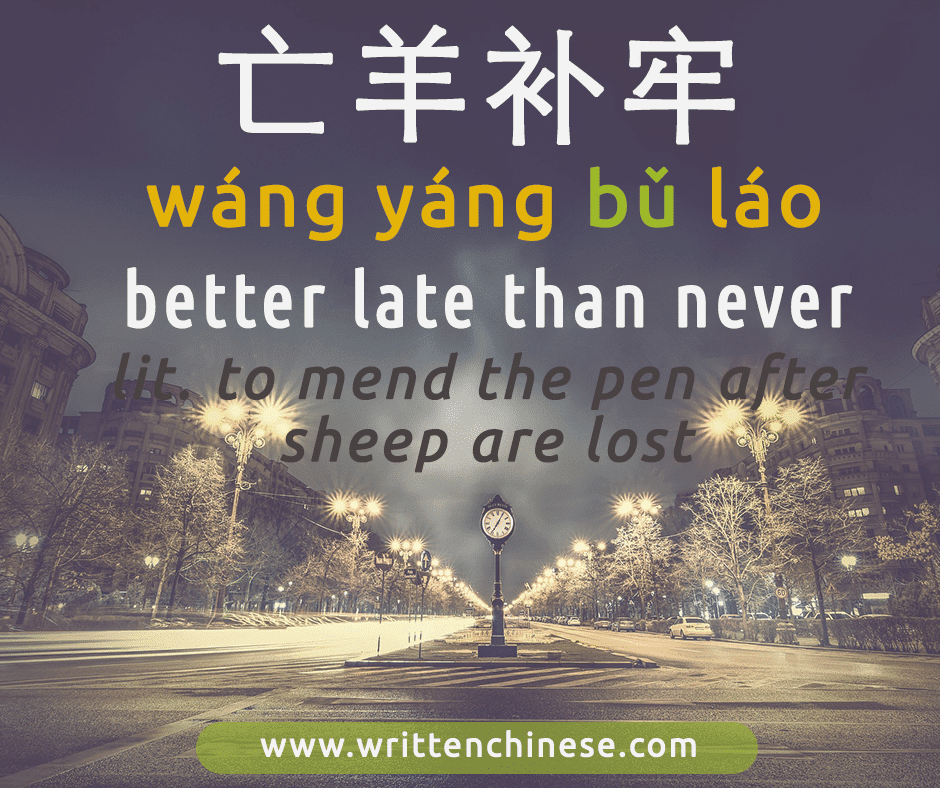
亡羊补牢 literally means to ‘repair the pen after the sheep is dead’, but its allegorical meaning is to act belatedly or like the English phrase, ‘better late than never’.
Example:
为什么不给他打个电话道歉? 亡羊补牢,为时未晚。(wèi shén me bù gěi tā dǎ gè diàn huà dào qiàn? wáng yáng bǔ láo, wéi shí wèi wǎn.) = Why don’t you call him up and apologize? Better later than never.
This is just a short introduction to Chengyu and Chinese idioms. If you’re interested in learning more Chengyu, check out the Chengyu flashcard sets in the Written Chinese Dictionary!
The post 10 Useful Chinese Chengyu and Idioms for Beginners appeared first on Written Chinese.
 |
submitted by /u/Caulisoup [link] [comments] |
 |
submitted by /u/Sellar [link] [comments] |
In everyday English, “Mandarin” refers to Standard Mandarin. (The official language of Mainland China and Taiwan) But Mandarin is also a group of related dialects, spoken mostly in northern China. ...
The post The Sounds of Northern-Accented Mandarin Chinese appeared first on Mandarin HQ.
 |
submitted by /u/lmlsy [link] [comments] |
This app started with the letter V, was like "Vouku" or something similar... It had a blue logo. It combined searching thru all those websites then let you watch the videos on the app itself. I don't know if it got removed or changed names or if I forgot the name. Google isn't helping any :(
Thanks for your help!
Hello everyone, I'm a bit confused about the grammatical implications of a couple of characters.
As I understand them 到 and 过 function, to some degree, as a form of some 'past action modifier'. How do I know when to use them for a given verb? for instance, 说过 is correct, but is 说道 correct? if not then why not. if so, then how did the meaning get modified?
I did some googling on it but nothing seems to come up related to this question. Thank you.
Seeing a doctor in China and visiting a Chinese hospital. This lesson will teach you the names of some common diseases and the names of the departments in a Chinese hospital. In case of emergency, it’s important to know how to call an ambulance in China. Please signup and become a registered subscriber to download ALL 276+ audio lessons with full PDF transcripts, worksheets and additional situational dialogues.
Learn about driving in China and about getting a Chinese driving license. Please sign up and become a registered subscriber to download ALL 270+ audio lessons with full PDF transcripts and worksheets.
One challenge I'm sure we've all had is trying to learn two characters that look really similar. I'm still newish but ones that made me stop and think at first:
很 得
面 百
我 找
说 祝
What about you all?
 |
submitted by /u/LingoYes [link] [comments] |
This week our question comes from Daniel, who asks us “What do you think about music and tv in mainland China?”
If you want to ask us a question just go to our voicemail page and leave us your question!

The post TWCC116 – Top 5 Chinese Songs and a Bit About TV, too, Episode 116 appeared first on Written Chinese.
Seriously, I need 2 seconds to search through every symbol so I need some tips to type Chinese Pinyin quicker.
As the title says, I have my Chinese finals next week. The audio that the teacher puts on is too fast and I can not understand. I am in Chinese 2 FYI. What are some things I can do to improve my listening skills?
Thanks
Glad to help anyone to learn Chinese as long as I can.There are some foreign colleagues in our office too.It's interesting to communicate each other.
Hey everyone, I was wondering how to express duration of events, such as “我打算去成都 two weeks!” Any advice would be very appreciated!

Today I’m going into full dad mode to educate you all about pork rib tips––as in the cut of meat and my recipe for fall-part tender, Chinese Takeout Style Pork Rib Tips! Pork rib tips are a less common cut of the pork rib, but are one of the best kept secrets of Chinese cooking! […]
The post Chinese Rib Tips: Fall Apart Tender Takeout-Style appeared first on The Woks of Life.
我们看了樱花,不但好看,而且哪儿都能看到。 We went to see cherry flowers, not only it was beautiful, but also you could see them everywhere.
Does this sentence sound weird ?
I'm preparing some videos that go over common mistakes students make. Other than looking over my own students' work, I want to look for more sentences written by students on the web. I tried HiNative, but the user interface is a bit problematic.
Are there additional sources of Chinese text written by students? Thanks a lot!
 |
submitted by /u/Akired47 [link] [comments] |
Hey everyone.
I have been looking for online copies of novels in Chinese (either paid or free is fine), and I was trying to find Journey to the west or romance of the three kingdoms in traditional Chinese characters.
It really has to be online because it just makes the whole process of looking up unknown words so much easier.
Any input is appreciated, cheers
Hay guys,
today my girlfriend showed me one of the best Apps I've seen in a while, which is also EXTREMELY helpful for studying. It's called 微信读书 Wei Xin Du Shu.
You can find many books there. They also come with Audio files, which you can slow down drastically plus it highlights what it's currently reading. So you can listen to the audio and follow the text at the same time.
PLUS you can close the App and listen to the Audio, unlike for instance youtube.
Interesting for me is for instance Quanzi Gaoshou, maybe you know the Anime, which is for free I think.
Hello!
I wanted to start learning this beatiful language and wondered which book would be the best to start with. I found Chinese Blockbuster but unfortunately I didn´t find any reviews on this book. I would be really happy if someone who has already used the book, told his feelings about it. Would you recommend it or not?
Have a beatiful day!
Hi all! Looking for some guidance relating to my Chinese language learning. First let me tell you about my current situation:
I speak very basic chinese at present. i have travelled around there for 1 month, can speak basic phrases, order food, ask for directions etc. but can't really formulate sentences. definitely classified as a beginner.
Taking a gap year after completing university. As such, I have a year or so to dedicate to my Chinese learning.
Finishing up work here in Ireland in September. At that point I will free to move to China and immerse for a 1 year period.
My girlfriend is Chinese. ironically we will be long distance while I am in China, as she is doing masters degree in Canada. But we talk every day on WeChat and she is very much on board with helping me achieve my goal this year (in other words, i have a native speaker to talk to)
financially, i will have enough money saved to keep me going over in china for a few months. budgeting to run out of money by january or so at which time i will probably need to source an english teaching job to keep me going. (in other words, i have enough money to spend wisely on learning resources etc. but not to splash out on an expensive immersion course in china.
Taking all of this into account, I am looking for somebody to give me a suggestion of a road map i should follow to become as fluent as possible by this time next year. Specifically:
What apps i should use (I have researched different apps to death, but i think i have information overload. what are a number of apps that compliment each other and i could use in tandem)
What i should focus on/do in
(A) - the period between now and when i can leave to go to China. Where i will be working here in ireland but have enough time for a few hours of study per day.
(B) -when i get to china. any suggestions of ways i can immerse myself in chinese life? cities i should go to? jobs i could do etc. i am reluctant to just take the english teaching route initially as i think this will hinder my immersion. i can survive without the income for a few months and would even love an unpaid job that would force me to use my chinese e.g. in a hotel.
Apologies for the length of this post, but i would really appreciate peoples opinions on a plan that i should follow. I am determined that this is the year that i will become proficient in Chinese, and I would love to decide on a plan that i can follow, get the necessary resources, and then just dive headfirst into this.
IF YOU WERE IN MY POSITION, AND YOU NEEDED TO LEARN CHINESE BY NEXT MAY, WHAT WOULD YOU DO??
Thanks so much in advance.
If you’ve never been to China, you might imagine that it is a land of tea drinkers; but while China certainly has a tea-drinking tradition that stretches back millennia, in recent years, coffee culture...
The post 11 Best Coffee Shops in Beijing You May Want to Try appeared first on China Whisper.
This lesson models the real situation of opening a bank account in Mainland China. You will learn words and expressions in Mandarin Chinese and will be able to speak Mandarin Chinese to a bank clerk in China and open a bank account. It’s a very comprehensive lesson with many new and useful expressions.
Please signup and become a subscriber to download the PDF transcript.
This lesson will teach you some usefull expressions in Mandarin Chinese used when you need to have your things fixed.
Please signup today and become a registered member to download 276+ audio lessons with ALL full PDF transcripts, worksheets and dialogues.
 |
submitted by /u/AliceHZ [link] [comments] |
 |
submitted by /u/AliceHZ [link] [comments] |
I'm trying to merge two separate SRT files - one simplified and one English - for a movie, but everytime I merge them together only the English shows. They each display separately with no problem (characters display and everything), and I've been able to watch shows with dual subtitles I've downloaded offline on VLC beforehand.
I'm watching on VLC, I have the language set to UTF-8, I've tried merging the subs with both jubler and dualsub, but still only the English displays.
Does anyone have any recommendations either for other apps, or to tell me I'm an idiot and what I've been doing wrong? I'd greatly appreciate it!
 |
submitted by /u/ChineseZeroToHero [link] [comments] |
你好
I'm currently somewhere between HSK2 and HSK3. I'm taking lessons at the Confucius institute at Manchester University, currently their "Comprehensive Mandarin 3" course.
Previously I have found my form of studying ideal, which is learning each new word within a sentence to give it context. I add these to anki and break down pinyin,hanzi,meaning etc. into multiple cards.
The I'm currently on their 3rd course, it is far more grammar heavy, each lesson contains several new grammar points. My practice at home while great for learning vocab is lacking the grammar component.
The Chairman's Bao write graded mandarin articles and provide a break down of the grammar used (I really enjoy reading their articles it helps me understand what I've learnt in context). For example here is one of their posts:
今年47岁的王洪凯(Wang Hongkai)是大连一个小学的保安。他的儿子今年八岁,身体不好,不能走路。 儿子小的时候,爸爸和妈妈每天带着他去北京的大医院看病,花了很多钱。2016年9> 月1日,爸爸开始背儿子上学。2018年,学校给这个爸爸找了一个在学校里做保安的工作,让他可以来照顾儿子,也有收入。学校里的老师和学生都来帮助他们。 爸爸、妈妈和儿子一家三口都很快乐,他们很感谢有这么多好心人帮助他们。
And their grammar section is:
...的时候 /...时 - Expressing "when…" with "...de shíhou / ...shí" 儿子小的时候,爸爸和妈妈每天带着他去北京的大医院看病,花了很多钱。
每 + 天 / 周 / 年 / 次 - Expressing "every day / every week / every year / every time" with "měi + Time Word" (天, 周, 年 and 次 act as their own measure words) 儿子小的时候,爸爸和妈妈每天带着他去北京的大医院看病,花了很多钱。
Verb + 着 - Expressed after verbs to indicate an action in process with "Verb + zhe" 儿子小的时候,爸爸和妈妈每天带着他去北京的大医院看病,花了很多钱。
Verb / Verb Phrase + 了 - Expressing that an action has been completed with "Verb / Verb Phrase + le" 儿子小的时候,爸爸和妈妈每天带着他去北京的大医院看病,花了很多钱。 2018年,学校给这个爸爸找了一个在学校里做保安的工作
给 + Noun + Verb - Expressing a more informal "for sb / sth..." with "gěi + Noun + Verb" 2018年,学校给这个爸爸找了一个在学校里做保安的工作
这 / 那 + Measure Word + Noun - Expressing "this… / that…" with "zhè / nà + Measure Word + Noun" 2018年,学校给这个爸爸找了一个在学校里做保安的工作
(在)...里 - Expressing "in / inside…" with "(zài)...lǐ" 2018年,学校给这个爸爸找了一个在学校里做保安的工作 学校里的老师和学生都来帮助他们。
Phrase + 的 + Noun - Expressed to link a noun to a preceding phrase with "Phrase + de + Noun” 2018年,学校给这个爸爸找了一个在学校里做保安的工作
Subject + 让 + Sb / Sth + Verb / Verb Phrase - Expressing "to make or let sb / sth to do sth" with "Subject + ràng + sb / sth + Verb / Verb Phrase" (causative verb) 2018年,学校给这个爸爸找了一个在学校里做保安的工作,让他可以来照顾儿子,也有收入。
Subject + 可以 + Verb + Object - Expressing that the subject "can" perform an action with "Subject + kěyǐ + Verb + Object" (used for expressing permission to perform the action) 2018年,学校给这个爸爸找了一个在学校里做保安的工作,让他可以来照顾儿子,也有收入。
这么 + Verb / Adj. - Expressing "so / so much…" with "zhème + Verb / Adj." 他们很感谢有这么多好心人帮助他们。
They do this for every article, they seem to be machine generated somehow.
I was thinking how amazing it would be if I could take every sentence I have in anki and break down which grammar rules it utilises. That way I could create new cards asking "Which grammar rules does this sentence demonstrate?" Or create a deck containing only sentences that use a certain grammar structure.
I've been using Stanford's Chinese word segmenter to help me find sentences containing words I want to learn. It also has the ability to break sentences down into their grammatical components. Unfortunately I am about as far from a linguist as you could imagine and Chinese is the first foreign language I have every learnt (ignoring my horrendous French classes in Belfast 20 years ago).
Here is a webpage showing what they have achieved, https://nlp.stanford.edu/projects/chinese-nlp.shtml
What I'm aiming to do is somehow take each sentence and break it down into grammatical structures used per HSK level. The Chairman's Bao somehow achieve it and I have no idea how, the Stanford segmenter seems like a great start but with my poor understanding of language constructs I do not know where I should start.
I'm aiming to share any code/utilities I write with the wider community. I already have code that will find sentences containing only words you know (i.e. you have somewhere in anki) and one new word, it is amazing for sentence mining. I'm hoping with this I can add grammar mining.
Does anyone have any suggestions as to how I can achieve this, or at least somewhere I can start?
Thank you!
Vocabulary and expressions in Mandarin Chinese related to using a computer and Internet. Working with files and folders, chatting in Chinese with your friends online. Your computer has crashed! Tell your Chinese online friend that you need to restart your computer!
Please signup and become a registered subscriber to download ALL 276+ audio lessons with full PDF transcripts and worksheets.
This lesson is about making an investment in Shanghai, but it’s not limited to it, everyone will find a lot of useful vocabulary in this lesson, used for daily conversation in Mandarin Chinese.
Please sign up and become a registered subscriber to download ALL 270+ audio lessons with full PDF transcripts and worksheets.
 |
submitted by /u/AliceHZ [link] [comments] |
Hey guys,
I put together what I believe is a comprehensive list of all of the free online resources to learn Chinese, including video, audio, apps, courses, dictionaries, websites, textbooks ... you name it. The complete list is here: http://gratisglobal.com/learn-chinese-free/
If I missed anything at all, please let me know so I can add it, as long as it is free and high quality. Apps and programs with the "freemium model" are included as long as the free offering is substantial enough.
Hope this is helpful.
Susie
from New China TV https://www.youtube.com/watch?v=LWntHYtd5Vo